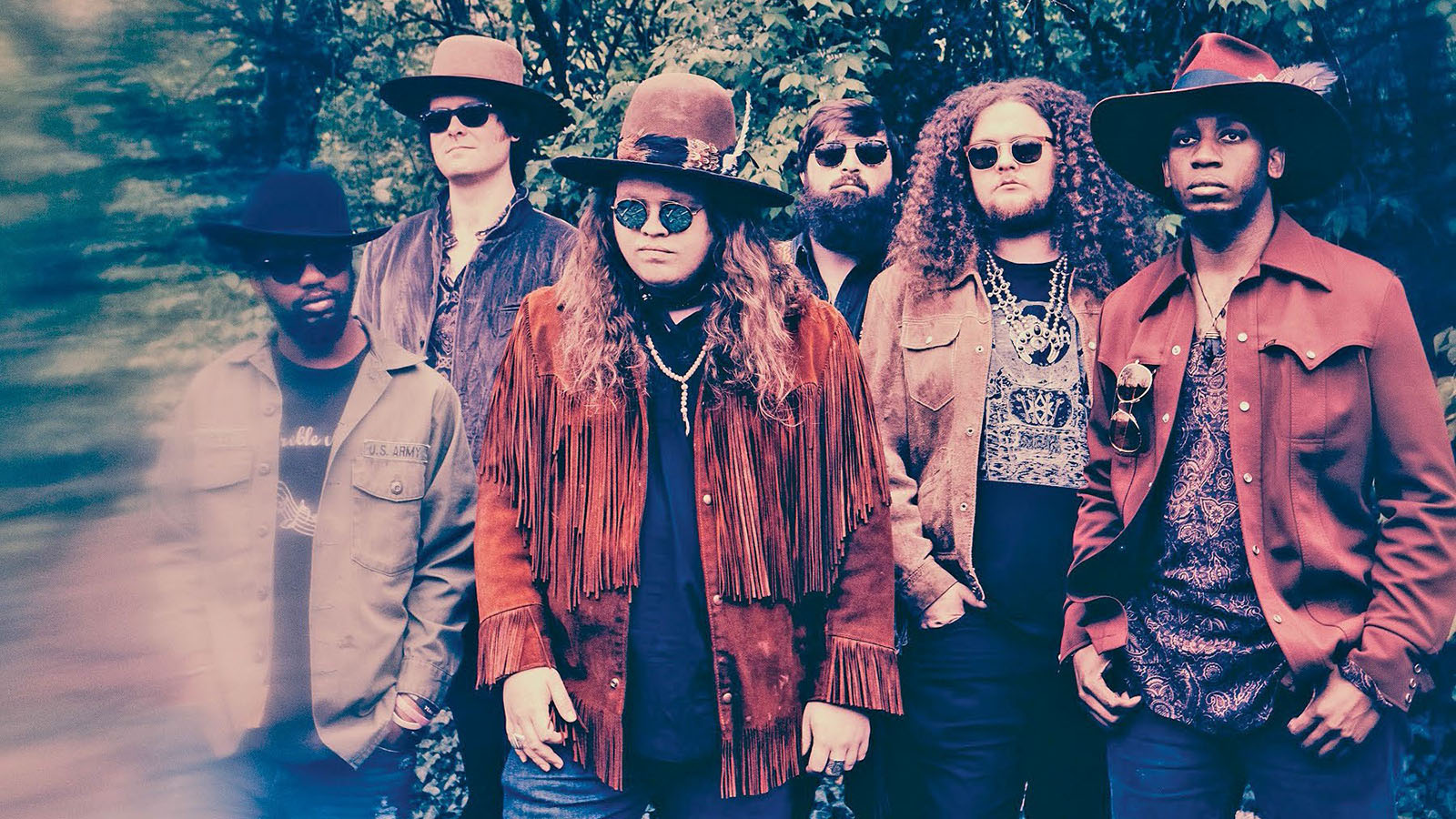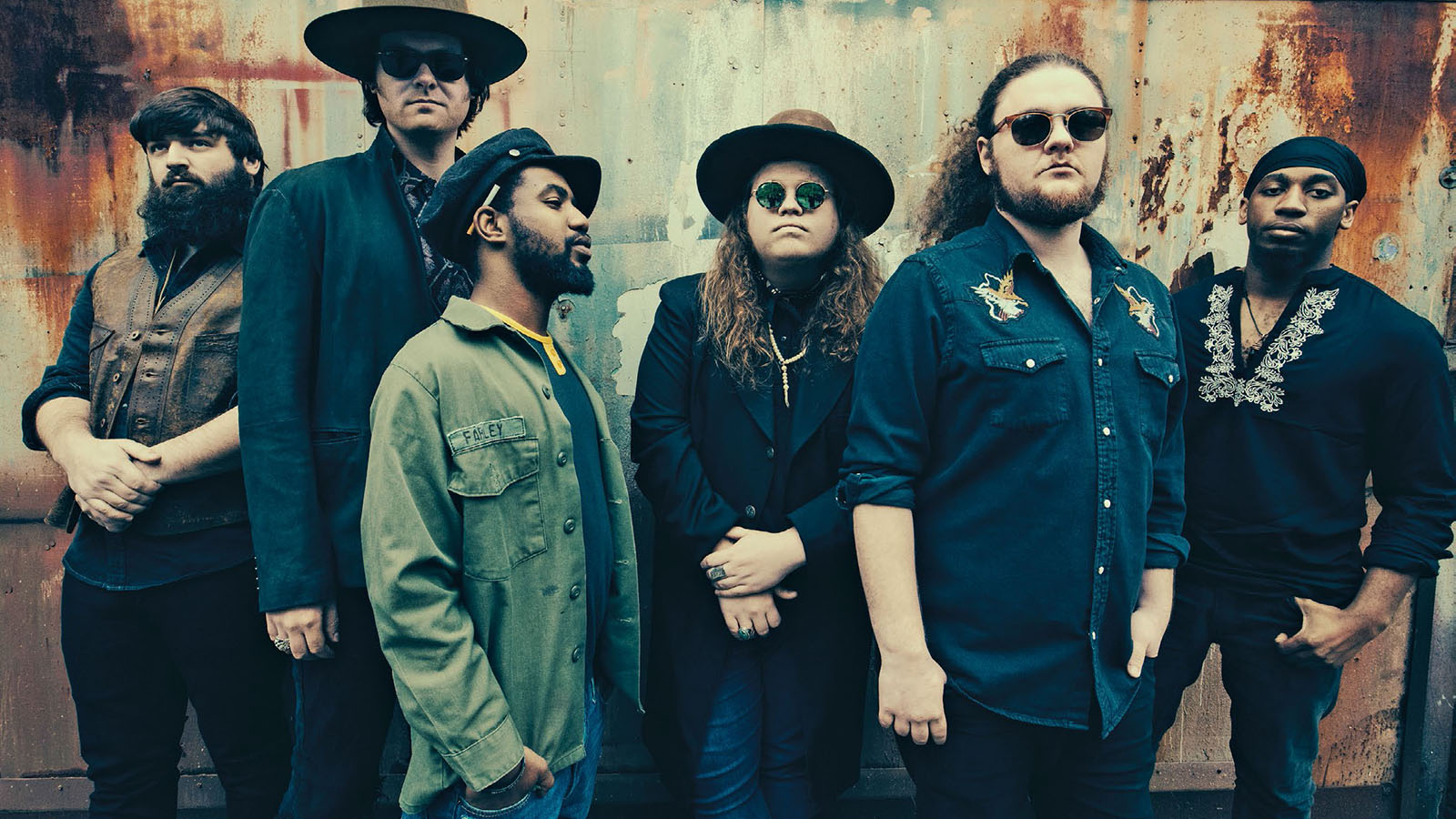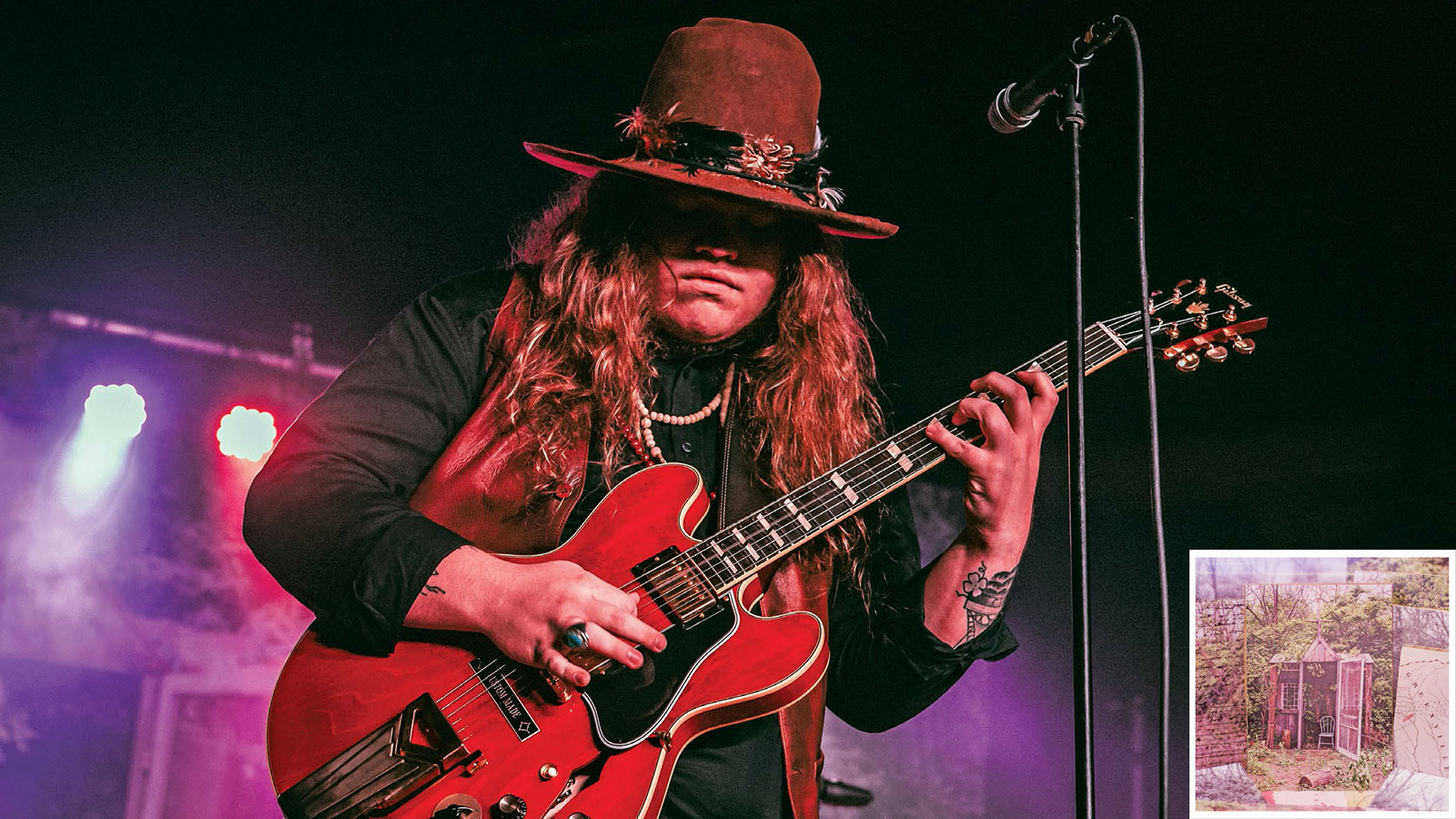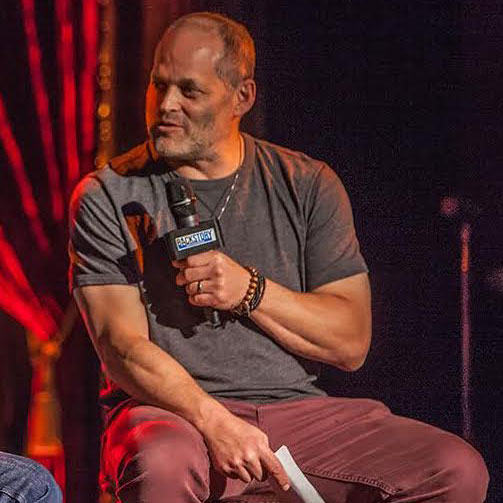
All the latest guitar news, interviews, lessons, reviews, deals and more, direct to your inbox!
You are now subscribed
Your newsletter sign-up was successful
Marcus King has moved — quickly and definitively — from “intriguing young talent” to “compelling artist you can’t take your eyes off of.” He’s one of the most compelling blues-based guitarists around, and at 22 already a fixture of clubs and festivals, touring constantly with his Marcus King Band and appearing with Warren Haynes and Tedeschi Trucks Band. He also was a member of Chris Robinson’s As the Crow Flies.
King’s reach seems sure to expand further with his third album, Carolina Confessions, produced by Dave Cobb (Chris Stapleton, Sturgill Simpson). The music focuses more on King’s powerful, soulful vocals and achingly confessional songwriting. But while many of the tunes are driven by strummed acoustic guitar, the music remains sparked by his tough, fleet-fingered playing.
“Marcus is a ferocious player, but it’s coming from the same spirit as his singing, so it always retains this lyrical quality,” says Haynes, a mentor who produced King’s self-titled second album.

King, a fourth-generation musician whose father, Marvin, was his first big influence, established himself around his hometown of Greenville, South Carolina, before signing with Haynes’ management team. After re-releasing his debut album, Soul Insight, they took King and his band into the studio to record an album that represented a stunning leap and included guest appearances by Haynes and Derek Trucks. That record put King on the national map, and he’s spent the subsequent two years touring relentlessly, constantly elevating his playing, singing and songwriting.
With all those miles and gigs under their belt, the Marcus King Band have evolved into a tight, swinging six-piece with organ and horns that frame, focus and drive King’s voice and guitar; the two are, as Haynes implies, tightly linked. The band’s swinging drive and King’s intensity imbue even the most melancholy lyrics with joy and passion. Carolina Confessions is the sound of a major artist coming into his own.
Each of your three albums has taken a different direction. Is that something you set out to do?
It’s more a reflection of where the band is musically and where I’m at as a writer in the moment. We did demos in Memphis for this album, but then I kept writing and that new material became what I wanted to focus on — mostly acoustic stuff that had no demo versions. I was working through a lot but [I was] on the road too much to see a therapist, so I was trying to get it out of my head and onto paper. Doing so, a lot of things came to light.
All the latest guitar news, interviews, lessons, reviews, deals and more, direct to your inbox!
The big theme seems to be broken relationships — but with your hometown more than a romance. Maybe I’m off base, but…
No, that’s where I’m coming from! Part of it is accepting half of the blame for that broken relationship and kind of apologizing after the fact. The big overall theme of the record is confessing what’s on your mind and in your heart. I almost feel absolved after recording, which is why there’s a confessional booth on the cover; when I write, I feel I am confessing, and the opening track is a straight-up confession. There’s also the theme of feeling like my hometown was taken away from me by being gone so much and still having to confront broken relationships there, being afraid to go to the same old places because you may see certain people.
It’s natural that you would have grown and changed, having hit the road right out of high school. You subbed real-life education for college and have to be a different person with a wider perspective than you were a few years ago.
Yeah — and it was even before I finished high school because I actually dropped out of 11th grade, got my GED, moved out of my parents’ place and just hit the road with my brother. I’ve found that with all the traveling I do, coming home and seeing new buildings growing and changing can be disorienting and I search for my anchors. My grandma is my anchor, and some restaurants and old friends I know are still going to treat me the same way — still give me shit or give me a noogie.
Everyone needs those people in their lives. “Welcome Round Here” has some pretty intense lyrics. Is that a reflection of how you sometimes feel in your hometown?
Yeah. The initial inspiration was when our current president first announced the travel ban. That really didn’t sit well with me and I just started writing about how pissed off I was. I started thinking about people who don’t leave their hometown, especially in the South, but everywhere, really. And people who leave but struggle to be accepted when they come home. People leaving home and finding out who they are, who they want to be and what they want to do, and then coming back home to find that their parents are not supportive, that they’re disappointed in them. In the South people are basically excommunicated from their families and communities all the time. You see people just disown their own family, and I think that’s a disgraceful, a horrible thing to do.
You are very tied to your family. Do you feel you’re carrying on a family tradition by doing what you do, as a fourth-generation musician?
I really do. It’s a humbling thing that I feel a lot of pride in. My grandfather was such an incredible musician and a very fair and honest man. When he passed, he gave his guitar to my dad and now I have it and I played it all over this album. My father is a great musician and my first guitar influence. He’s been toying his whole life with different groups, always the guitar player in the band, and the front man screwed him and the band out of record deals and other things several times, after which he would have to move on to something else. So his main advice to me was to get my own thing together and be the dude instead of trying to follow somebody else. I took that advice.
You’re lucky to be able to get that from your father!
Yes. Of course, he didn’t want me to drop out of high school just because everybody thought I was a burnout. But I felt blessed enough to know what I wanted to do instead of going to college right away, change my major four times and lose a lot of brain cells on campus. I did not want any part of that shit. My father was like, “Listen, if you really want to do this, you’ve got to go get your high-school-equivalency diploma, and then I’ll be okay with it.” So that’s what I did. I have always had a very supportive family, which is just a real blessing. I do feel like I’m carrying on a torch for them.
Is that more acoustic-oriented material what led you to Dave Cobb? It’s not an obvious choice for either of you.
Yeah. The material was more folky or country, or “Americana,” as the label will call it. I listened to Dave’s work and loved how he used the great Studio A at RCA and let the room live in the sound, rather than compressing it too much. Then we talked on the phone it was like talking to a cousin. We had very similar upbringings and moral codes. We hit it off immediately and it just felt very laid back.
He has said his emphasis is always on the voice. Was that something you wanted to do?
A lot of my work is centered around the guitar and it felt nice to focus a little bit more on the songwriting and vocals, but it’s not like we were spending hours getting vocal sounds! At least 70 percent of the vocals were cut live with the band. There were little mistakes that I made, and times I said, “Oh man, I said the wrong word there,” but he liked it and wanted to keep them. He liked the natural raw sound of the first take. It was an organic way of recording.
How important is it to you that it’s the Marcus King Band, and not Marcus King with a band?
Very important because I think there’s such a difference in the sound of a band or a guy and a band. That worked with like Dean Martin, but it don’t play well for me. You just get to a special place when you have this core working together as a family, and you all eat off of the same plate. It just brings you closer together, which is really reflected in the music itself. I always prefer to have my guys. I was spoon-fed the Allman Brothers since I was a toddler and I always wanted that fellowship. I wanted a big extended family in music, a band of brothers.
Over the last few years, you’ve played with many people, including Warren Haynes, Tedeschi Trucks Band and as a member of Chris Robinson’s As the Crow Flies. Does all that impact your music when you come back to the Marcus King Band?
Yes. Playing with them all is a blessing and learning from them is a great byproduct. In As the Crow Flies, I really learned a lot about being a member of a band. Standing behind one of the greatest frontmen of our time and watching how he handles the crowd and directs traffic was refreshing. It’s really nice to be a part of supporting him instead of the focus of everything.
You have a larger piece band, with organ and a full horn section. Is that what you always envisioned? It sure would be easier to jump in a van with a trio or quartet.
Yeah, man. Absolutely. I always wanted a full band and horns were a big part of that, and I felt almost validated when I read about Duane Allman wanting a horn section for At Fillmore East. That made sense to me. Even before I sang, I listened hard to James Brown, Otis Redding, Aretha Franklin, Bobby Womack and Janis Joplin to copy the vocal lines to guitar. I didn’t want to sound like other guitar players. In doing that, I started really feeling the horn section and how powerful they could make a tune.
And I always wanted to have a Hammond organ, which required us to have a trailer, adding stress and wear and tear on whatever vehicle we were using. Everybody always told me, “Boy, just cut it down to a three piece and make more money.” I’d say, “You’re probably right, but no.”

Talk about Warren Haynes’ influence on you as a mentor.
Warren and I have become very close. He’s a very thankful, gracious and humble human being and just very a calming presence to be around. I have a distaste for authority figures, like people in school who would bark orders. Warren and Derek Trucks both have this quality where they talk about past experiences and situations they’ve been in, where if you listen close enough, you can hear the advice and know exactly what you need to do but they’re not telling you directly what to do. Warren is amazing that way, telling stories about what he’s been through, or offering his take on the matter.
Also, seeing Warren stand outside of his bus every night and shake the hands of hundreds of people really made an impression. I try to do that as much as I can. He really sticks to the fact that they’re the ones that put him where he’s at.
Tell me a little bit about the Gibson ES-345 that was your grandfather’s. Did you use it in the studio?
Yeah, it’s all over this record. It’s just a really boss guitar. My grandfather was a Staff Master Sergeant in the Air Force and he quit playing music to raise his family. He started getting really bad stomach ulcers, and a doctor asked him if he had any hobbies like golfing or fishing. [The doctor] said, “You should have an outlet to get some of this stress off of your shoulders, and it will help the ulcers go away.” [My grandfather] said, “I used to play music,” and the doctor said, “Well, you should start doing it again.” He was stationed in Great Falls, Montana, at the time, 1964, and he went to the music store and bought Big Red, which is a 1962 ES-345 with a different tail piece; I’ve never seen another one on a 345 so it was a custom made for sure.
He also bought a ’64 Super Reverb that my father now has. I use a ’65 Super that my dad gave me, along with a Homestead 2x12 cab with a 1200 or 120-watt head. I got rid of the pedal board a long time ago and just use a Cry Baby wah and a Tube Screamer as a power attenuator so I can bring the volume down and keep the tone.
You now have Gibson replica of Big Red, right?
Yeah. Gibson has been great. They sent me a replica of the guitar because we were all a little worried having it on the road all the time. Now we’re doing a signature model based off of that one that I’ve been using the past two years, and my granddaddy’s one.
Alan Paul is the author of four books, including Brothers and Sisters: The Allman Brothers Band and the Inside Story of the Album That Defined '70s as well as Texas Flood: The Inside Story of Stevie Ray Vaughan and One Way Out: The Inside Story of the Allman Brothers Band – both of which were both New York Times bestsellers – and Big in China: My Unlikely Adventures Raising a Family, Playing the Blues and Becoming a Star in Beijing, a memoir about raising a family in Beijing and forming a Chinese blues band that toured the nation. He’s been associated with Guitar World for 30 years, serving as managing editor from 1991 to 1996. He plays in two bands: Big in China and Friends of the Brothers (with Guitar World’s Andy Aledort).

